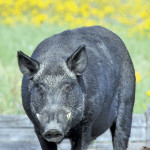Canada’s agriculture sector has yielded four new scholars to join the international Nuffield community and receive funding for research in their fields of interest. Nuffield Canada, the Canadian arm of the international Nuffield organization since 1986, has named Ellen Crane, Josh Oulton, Gavin Robertson and Shelley Spruitt as its Nuffield scholars for 2018. The new











